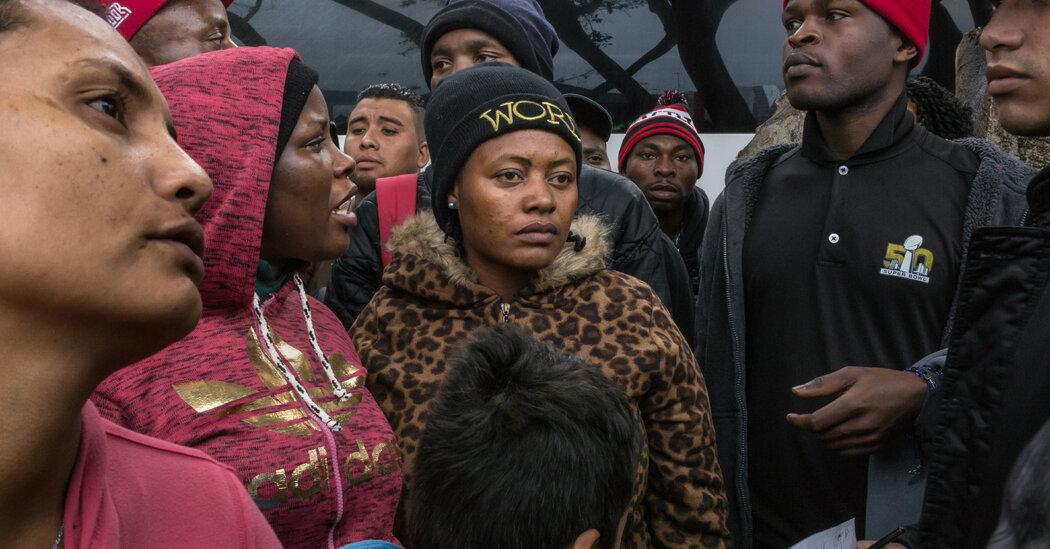U.S. Offers Protection to People Who Fled War in Cameroon
The strife has displaced some two million people in Anglophone regions and has resulted in thousands of civilian deaths and widespread food insecurity. As of December, 4.4 million people in Cameroon required humanitarian assistance, according to the United Nations. The State Department has cataloged serious human rights violations perpetrated by the police and the military, including torture and extrajudicial killings.
Fearing for their lives, several thousand Cameroon citizens from the English-speaking northwest have embarked on treacherous journeys, crossing South America, including the lawless jungle stretch called the Darien Gap, and Mexico to reach the United States, in order to seek asylum. On arrival, many have been locked up in immigration detention facilities.
Hundreds have been expelled back to Cameroon. International human rights groups have documented that some of them have fallen victim to persecution and abuse after returning to their country.
In announcing the decision, Alejandro N. Mayorkas, the Homeland Security secretary, cited the “extreme violence” perpetrated by government forces and armed separatists, and a rise in attacks by Boko Haram, the terrorist group. He said nationals of Cameroon would be allowed to remain and work in the United States “until conditions in their home country improve.”
According to the Migration Policy Institute, about 900,000 people are now eligible for the temporary protected status program, which was signed into law in 1990 by President George Bush. The protection is extended to people already in the United States from countries ravaged by natural disasters, armed conflict or other extraordinary circumstances that prevent their nationals from safely returning or living there.
The U.S. government periodically reviews each country’s status, which is granted for six to 18 months, and decides whether to renew. Each time a country is recertified, recipients must reapply and pass a background check. The Biden administration has renewed or reinstated protections for many countries, after determining conditions on the ground remained precarious.
The largest group of beneficiaries, more than 200,000, are from El Salvador. Nationals from Haiti, Sudan, Syria and Venezuela are among others under such protections — though people who entered the country unlawfully from those countries in later years do not have the protection.
Check out our Latest News and Follow us at Facebook
Original Source







